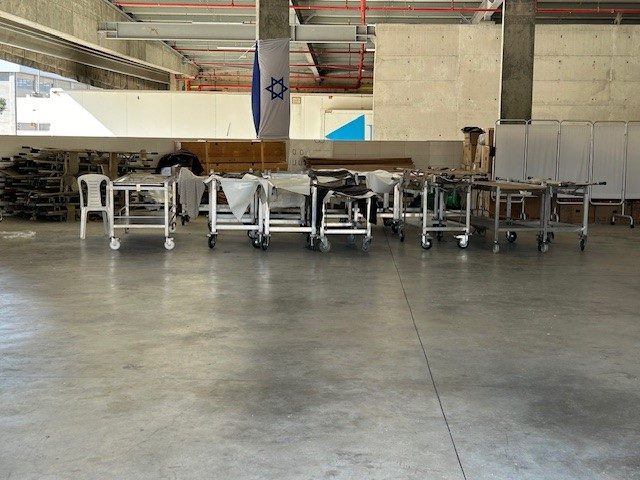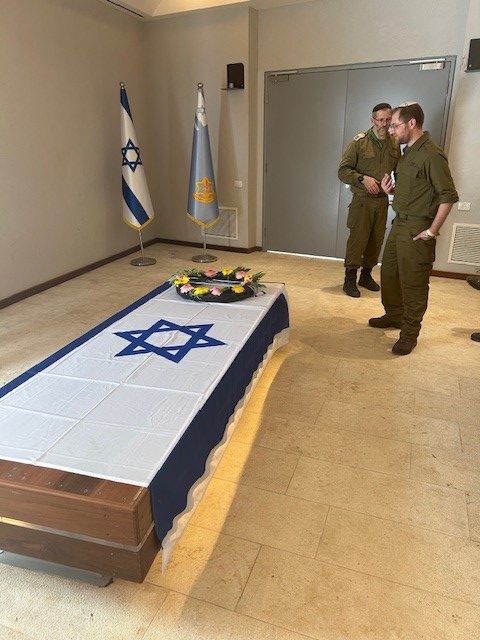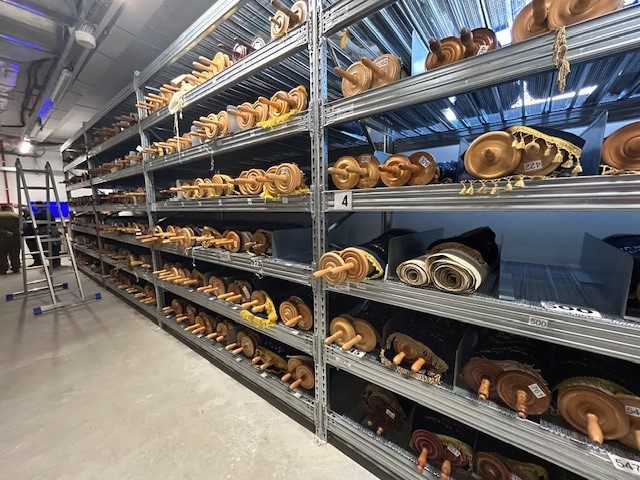Israel Trip Update #6: Last Day in Israel
My visit to Israel is about to draw to a close.
This morning, we began in Tel Aviv, with a briefing from a high-ranking IDF official. He described some of the challenges – military ones and others – that Israel is facing in this chaotic and scary time of war.
From there, we went to Shura, an army base near Ramle. This is where the bodies of terror victims and fallen soldiers are taken for identification. We saw racks of stretchers that had been used for the deluge of bodies that had recently come into the facility. We saw large refrigeration units where the bodies were stored. We entered a room – one of many – where the families of fallen soldiers can spend time with the bodies of their loved ones. We learned that, while other Western countries try to notify the families of fallen soldiers within an hour after the bodies are identified, Israel tries to do it within fifteen minutes. Israel is a small country, they reminded us, and the IDF wants to be sure that families learn the tragic news of their loved ones’ deaths from the IDF itself rather than through social media. They describe it as “the race against WhatsApp.”



Shura is also the headquarters of the IDF’s rabbinate. One of its chaplains showed us a large warehouse and processing center for Torah scrolls, donated from around the world for use in Israel’s army bases. We heard stories of how, on October 7, the terrorists knew ahead of time where the synagogues were located in the communities they attacked, and how they targeted those synagogues – not only to find people there but also to get their hands on Jewish sacred items. We saw state-of-the-art talitot katan – fringed undergarments (quick-drying ones) that even most secular soldiers are choosing to wear under their uniforms these days.
I’ve said in previous emails that I’ll save my reflections on this experience for my Zoom session with you on Monday, November 20, at 7:00 PM. I will, however, share one thought here.
Seeing the way Israel has had to deal with the massive number of deaths it experienced after the attacks gave me a sense, I think, of what Allied soldiers must have experienced when they liberated the death camps of Nazi Europe. I didn’t see any dead bodies, of course, and the number of deaths here in Israel was far less than the number of those killed during the Holocaust, but still….
And then, on the way back to Jerusalem from Shura, we got caught in a traffic jam. That’s because, for the most part, Israelis are still going to work each morning, and they’re still shopping, and their kids are going to school. Life goes on here, even in the face of tragedy.
Israel these days, in other words, is the land of death and traffic jams. That is the terrible, inspirational, bewildering reality of this magnificent country today.
In a few hours, I board a plane to head home to Calgary… and I look forward to seeing you very, very much.
Shalom,
Rabbi Mark Glickman
